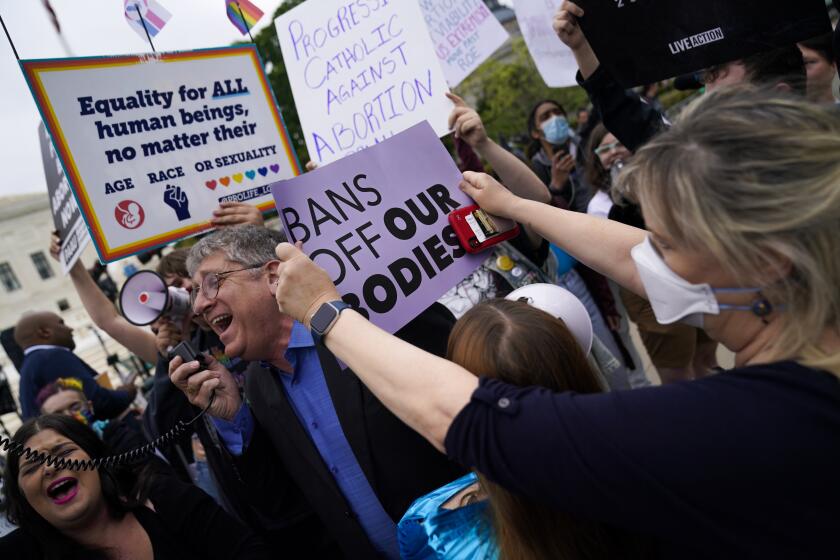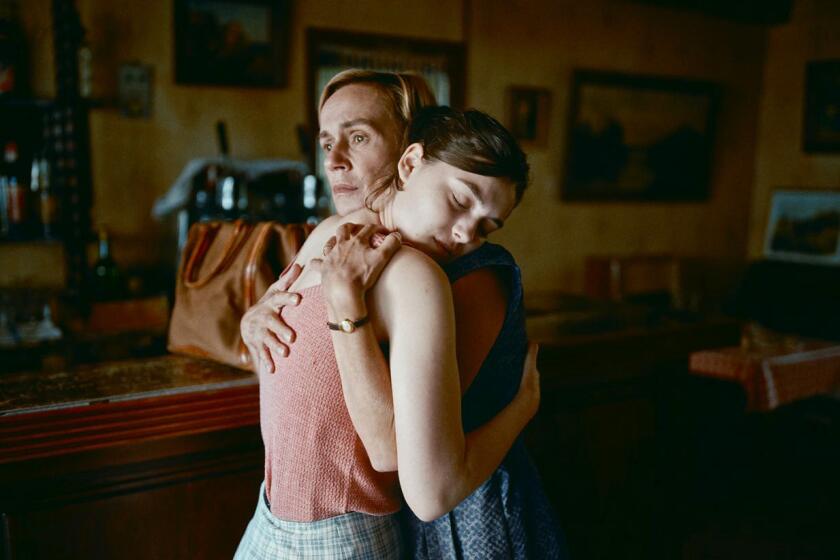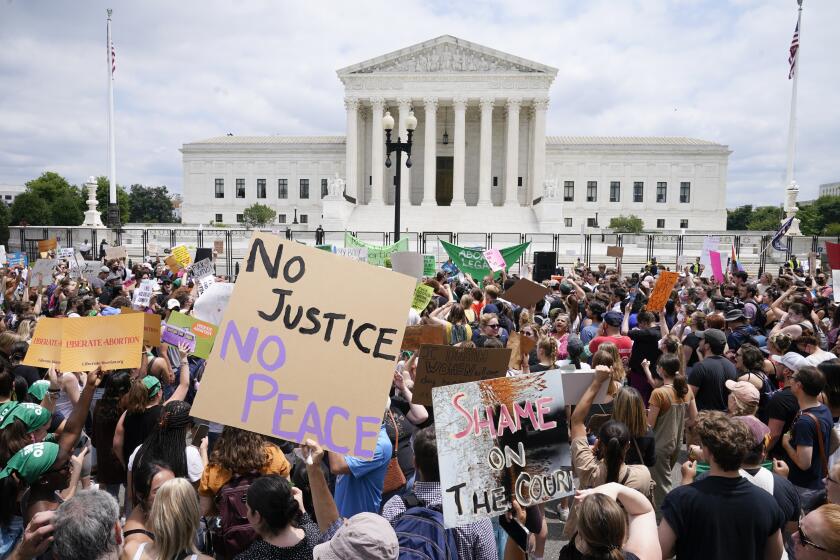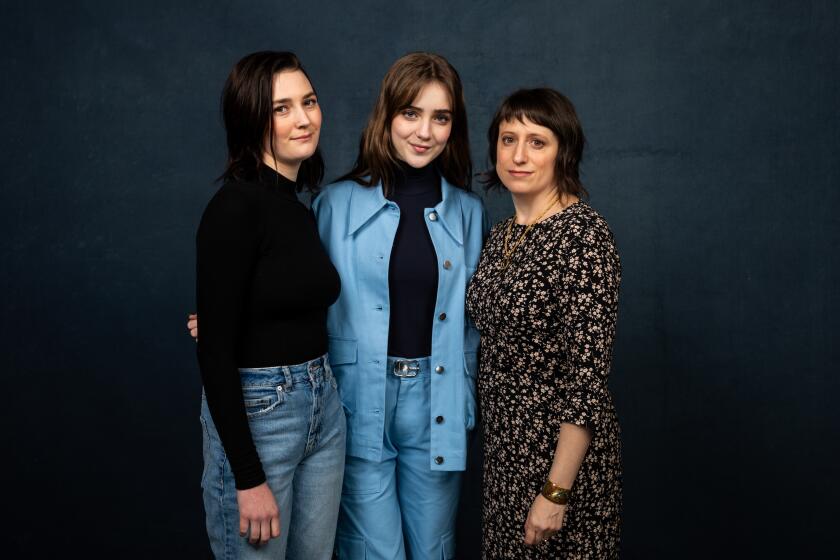Silent majority of Americans who support abortion rights just learned the danger of silence
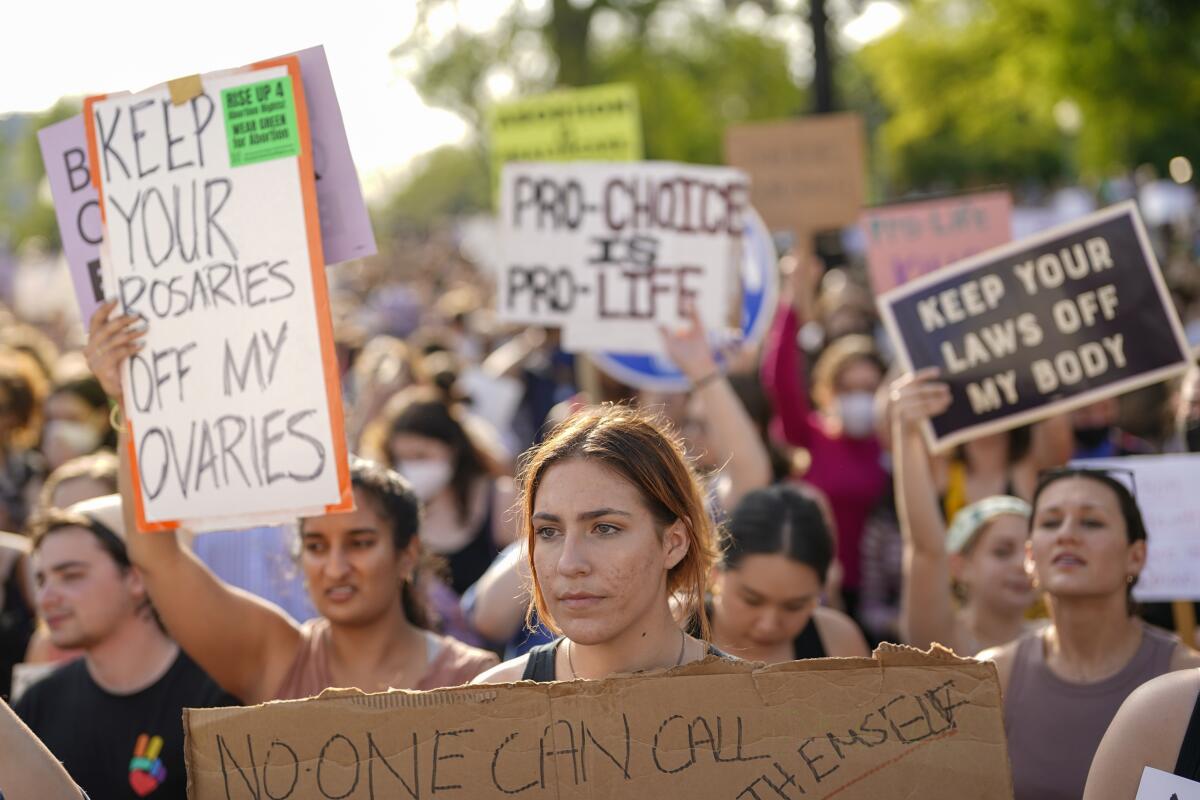
- Share via
Here we go again.
While the planet sizzles and Russia invades Eastern Europe, as the COVID-19 pandemic continues to claim hundreds of lives every day and millions of Americans search in vain for a living wage and affordable housing, the cynical machinations of conservative politicians who’ve turned reproductive rights into a single-issue campaign tactic have in all likelihood forced this country to fight once more for women’s most inalienable right: the ability to control what happens to their bodies.
A leaked Supreme Court document, obtained by Politico, appears to indicate a conservative court about to overturn Roe vs. Wade — the case that for a half a century has protected a woman’s right to choose a legal and safe abortion in every state.
Every poll conducted on the topic has found that a majority of Americans support a woman’s right to this choice, which means two things: Conservatives have surrendered all rights to their mendacious use of the term “silent majority”; and in this case, the actual majority has long remained silent. Americans are, in all likelihood, now going to have to fight in the street and at the ballot box to restore the rights that a repressive, control-hungry minority has tried so obsessively to curtail.
As news spread of a leaked draft opinion that indicated justices are prepared to overturn Roe vs. Wade, demonstrators headed to the Supreme Court.
We should also take a good, hard look at a popular culture in which the reality and importance of reproductive rights have been rigorously ignored.
As many as one in four American women will have an abortion in their lifetimes, as estimated by the Guttmacher Institute — nearly all during the first trimester and most after having had at least one child. A majority are in their 20s and living at or below the poverty line, but many are college-educated professionals who look a lot like female characters from film and television.
So where are their stories? With the exception of series and films that revolve around an unexpected and/or unwanted pregnancy, I can count on one hand the number of storylines involving abortion as it most often occurs.
When, in 2011, “Grey’s Anatomy’s” Cristina (Sandra Oh) terminated a pregnancy for the simple reason that she had not planned to become — and did not want to be — a mother, it was the first time I had ever seen a female character do such a thing.
A few other series subsequently included similar storylines — “Jane the Virgin” gave birth to her absolutely unplanned child, but in Season 3, her mother chose not to do the same, right around the time that “Crazy Ex-Girlfriend’s” Paula, also already a mother, terminated a pregnancy. A few years later, “Shrill’s” Annie had a surgical abortion when the morning-after pill failed. The morning-after pill has had an increasing on-screen presence, most recently in “Expecting Amy,” but the examples of women choosing to terminate a pregnancy remain few and far between.
Critic’s Notebook: Abortion a muted matter on ‘Grey’s Anatomy’
More often, abortion is depicted with all manner of Sturm und Drang (and, most usually, a “fortuitous” miscarriage). It’s either historical and dangerous, as in the first season of “Bridgerton” or the upcoming French film “Happening,” or it’s something a man is trying to force upon a woman, as in the recent series “Maid.”
Both situations also reflect reality, and no woman should ever be coerced into an abortion, but the fact remains that a woman making a choice that results in a baby fuels all manner of cinematic narrative; a woman making a similar choice that involves an abortion is exceedingly rare.
Apparently, we’d rather continue to humanize mobsters and serial killers or examine the horror of a potential dystopia than occasionally reflect the reality of so many women’s lives.
As we know from all types of stories too long ignored, that kind of erasure only reinforces ignorance and, too often, shame. The decision to have an abortion is private but so is masturbation, and lord knows we see plenty of that on the screen these days.
A new film adaptation of a 2000 memoir, “Happening,” about a French woman’s illegal 1963 abortion, trades the book’s specifity for universal power.
I understand that some people believe abortion is murder, just as some believe that weed is a gateway drug leading inevitably to a heroin overdose. I would recommend that none of those people ever have an abortion or visit a dispensary.
But personal beliefs are not, should never be, the basis of law. The moment a group of potentially developing cells becomes a fetus and then a potentially viable baby is at present unknowable — something scientists have debated for centuries.
Roe uses the medically accepted three trimesters of pregnancy, with their increasing chance of viability outside the womb, to guide the level of government restriction allowed to protect the potential baby. Written and supported by justices appointed by Republicans as well as Democrats, it has been accepted law for five decades, during which time the abortion rate has declined, and remains supported by most Americans.
But not all, obviously. Those who oppose a woman’s right to choose fall into certain demographics, which make them easy targets for politicians attempting to court support where, absent the issue of abortion, support might not be found. Richard Nixon successfully used antiabortion positions to appeal to Catholic voters; Republicans have been using the prospect of overturning Roe vs. Wade to cobble together an improbable coalition of Catholics, evangelicals and far right groups.
Aided by decades of theatrical and increasingly deadly attacks on women attempting to visit Planned Parenthood and other clinics, abortion became not a health or social issue but a singularly political hot button, used to turn American politics into a falsely framed, single-issue debate: You either supported killing babies or you didn’t.
This is where popular culture should have come in — and didn’t. In the absence of stories depicting the reality of abortion for most women, that intentionally malicious misinterpretation of a woman’s right to control what happens to her own body became far too easy to sell.
Even in a time when intensified conversations about rape and sexual harassment have increased public awareness of the dangers women face. The Supreme Court document was leaked just as many news outlets were reporting on the countless Ukrainian women raped as an act of war, creating a moment of hideous synchronicity. For centuries, the abuse of women’s bodies has been used to break entire populations — in part by impregnation through rape. Under many state laws that would be upheld or go into effect should Roe vs. Wade be overturned, even victims of rape and incest would be denied access to safe and legal abortion.
The Supreme Court strikes down Roe vs. Wade, the landmark ruling on abortion that has stood for nearly 50 years.
And even without the specter of rape, legally enforced pregnancy is a war crime against women. No woman should be forced to become a mother or to serve as an unwilling incubator for the adoption industry. No one should be punished for having consensual sex, particularly when that punishment is visited on only one of the partners.
Time and again, the antiabortion forces have proved through policy and rhetoric that their concern is not for the actual babies, who require food, shelter and all manner of resources that this country is loath to provide to those who cannot afford them. Nor is it about decreasing the number of abortions — women will continue to terminate unwanted pregnancies, either in states where it is still legal or by means illegal and often fatal.
Those opposed to abortion are evidently uninterested in decreasing the number of unwanted pregnancies; their politics go hand-in-hand with calls to end or curtail sex education, to close clinics like Planned Parenthood that offer free or affordable birth control.
No, this is all about control, about reminding women that their bodies do not belong to them — that their reproductive capacity, unlike men’s, is the property of the state, that their ability to make decisions about their future ends the moment some man’s sperm collides with one of their eggs.
We can blame conservative politicians and their cynical leveraging of this issue for career gain; we can blame the religious organizations that continue to equate women’s bodies with sex and sex with sin; we can blame the voters who, sincerely or not, insist on seeing an end to legal abortion as the most important issue of our time.
After winning prizes at Sundance and Berlin, filmmaker Eliza Hittman’s “Never Rarely Sometimes Always,” an emotional and naturalistic look at a small-town young woman’s attempt to get an abortion, comes to theaters.
But at a certain level, we’re all to blame. Too many of the vast majority of Americans who support Roe vs. Wade have been content to do just that: support reproductive rights without talking or writing or singing or filming enough about why they are so essential, why they were worth fighting for.
So now it looks like we are going to have to fight for them all over again. Right when there are so many other very important things to do.
More to Read
The biggest entertainment stories
Get our big stories about Hollywood, film, television, music, arts, culture and more right in your inbox as soon as they publish.
You may occasionally receive promotional content from the Los Angeles Times.
